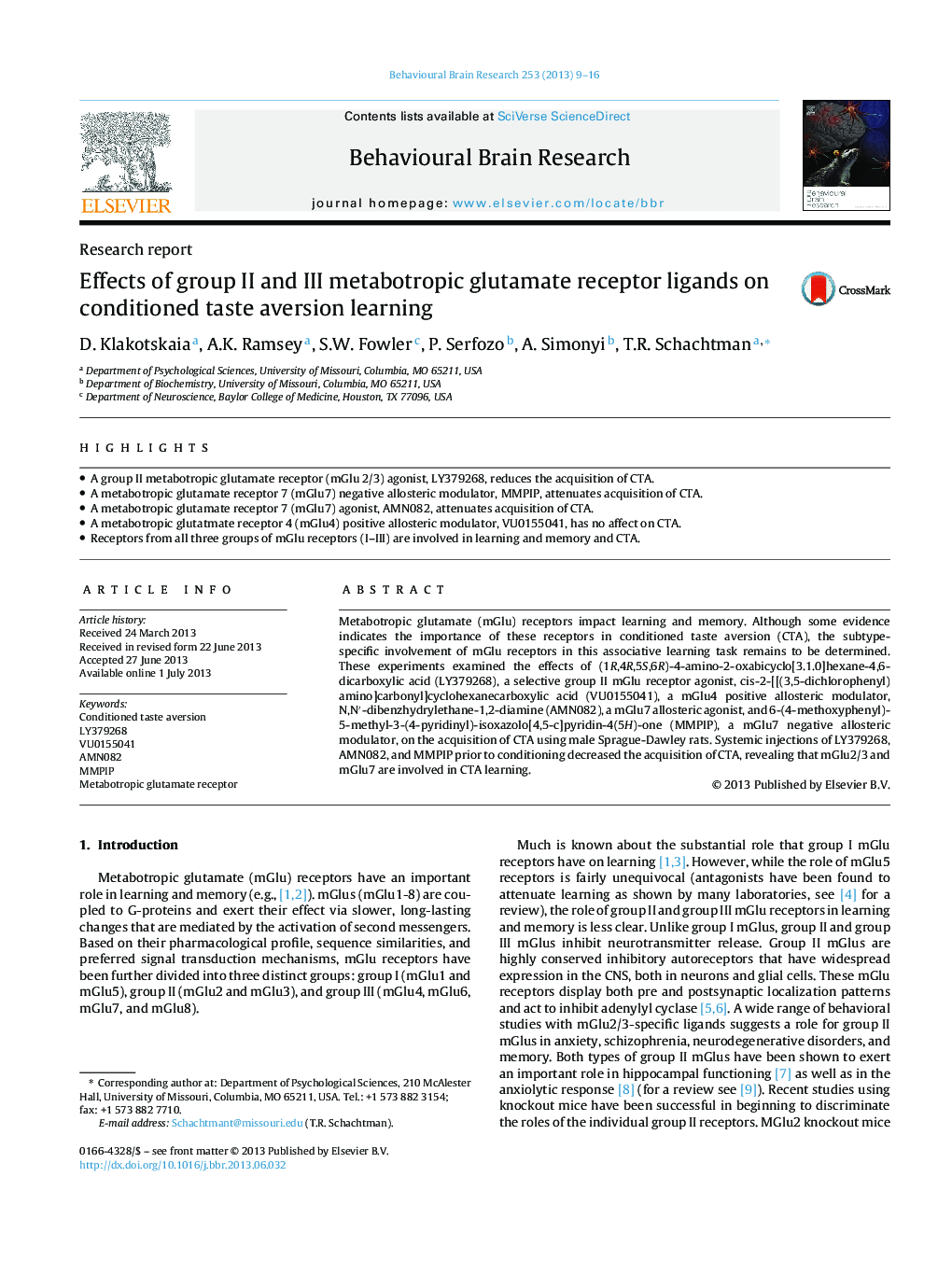| Article ID | Journal | Published Year | Pages | File Type |
|---|---|---|---|---|
| 6258632 | Behavioural Brain Research | 2013 | 8 Pages |
â¢A group II metabotropic glutamate receptor (mGlu 2/3) agonist, LY379268, reduces the acquisition of CTA.â¢A metabotropic glutamate receptor 7 (mGlu7) negative allosteric modulator, MMPIP, attenuates acquisition of CTA.â¢A metabotropic glutamate receptor 7 (mGlu7) agonist, AMN082, attenuates acquisition of CTA.â¢A metabotropic glutatmate receptor 4 (mGlu4) positive allosteric modulator, VU0155041, has no affect on CTA.â¢Receptors from all three groups of mGlu receptors (I-III) are involved in learning and memory and CTA.
Metabotropic glutamate (mGlu) receptors impact learning and memory. Although some evidence indicates the importance of these receptors in conditioned taste aversion (CTA), the subtype-specific involvement of mGlu receptors in this associative learning task remains to be determined. These experiments examined the effects of (1R,4R,5S,6R)-4-amino-2-oxabicyclo[3.1.0]hexane-4,6-dicarboxylic acid (LY379268), a selective group II mGlu receptor agonist, cis-2-[[(3,5-dichlorophenyl)amino]carbonyl]cyclohexanecarboxylic acid (VU0155041), a mGlu4 positive allosteric modulator, N,Nâ²-dibenzhydrylethane-1,2-diamine (AMN082), a mGlu7 allosteric agonist, and 6-(4-methoxyphenyl)-5-methyl-3-(4-pyridinyl)-isoxazolo[4,5-c]pyridin-4(5H)-one (MMPIP), a mGlu7 negative allosteric modulator, on the acquisition of CTA using male Sprague-Dawley rats. Systemic injections of LY379268, AMN082, and MMPIP prior to conditioning decreased the acquisition of CTA, revealing that mGlu2/3 and mGlu7 are involved in CTA learning.
